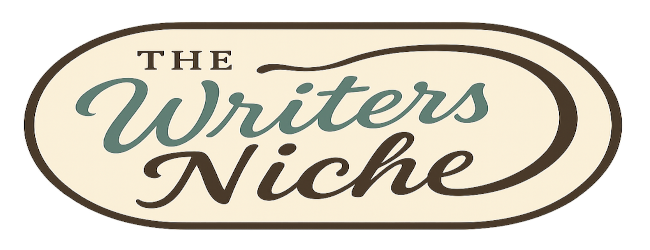
The 10 Best Free Writing Tools Every Writer Should Try
Let’s be honest writing is tough. Whether you’re cranking out a novel, polishing a blog post, or drafting client copy, the blank page can feel like both a promise and a challenge.
But here’s the good news: you don’t have to do it alone.
Today’s writers have access to an amazing toolbox of free apps, platforms, and resources that can help improve everything from grammar to organization to focus. The best part? You don’t have to break the bank to use them.
In this article, I’ll walk you through 10 of the best free writing tools every writer should try plus a few bonus tips to supercharge your workflow. Whether you’re a novelist, freelancer, blogger, or poet, these tools will help you write smarter, faster, and with more confidence.
1. Grammarly (Polish Your Grammar and Style)
Grammarly is like having a personal editor looking over your shoulder.
✅ Checks grammar, spelling, and punctuation
✅ Highlights wordiness, passive voice, and tone issues
✅ Works inside Google Docs, Word, email, and browsers
The free version is robust enough for everyday writing. For blog posts, client emails, or social media captions, it’s a lifesaver.
Pro tip: Use Grammarly to spot patterns in your mistakes so you actually improve over time.
2. Hemingway Editor (Make Your Writing Clearer)
Hemingway Editor is all about clarity and punch.
✅ Highlights long, complex sentences
✅ Flags passive voice
✅ Assigns a readability grade
✅ Offers a web app and desktop version
Paste your draft into Hemingway, and you’ll get color-coded highlights showing where to tighten up. It’s especially helpful for blog posts, marketing copy, or any writing meant to engage busy readers.
Pro tip: Don’t get hung up on achieving “perfect” readability use Hemingway as a guide, not a ruler.
3. Google Docs (Collaborate and Access Anywhere)
Google Docs is a classic for a reason.
✅ Free, cloud-based word processor
✅ Autosaves in real time
✅ Allows live collaboration and comments
✅ Accessible from any device
It’s ideal for co-writing projects, working with editors, or drafting anywhere inspiration strikes. Plus, you never have to panic about losing your work.
Pro tip: Explore the “Version History” feature it’s great for restoring earlier drafts or tracking your revisions.
4. Trello (Organize Your Writing Projects)
Trello is a visual project management tool that helps you keep track of everything.
✅ Create boards, lists, and cards to manage tasks
✅ Add due dates, labels, and checklists
✅ Drag and drop cards to track progress
Use it to organize blog post ideas, outline a book, or manage freelance deadlines. It’s flexible, intuitive, and surprisingly fun.
Pro tip: Set up a “Writing Pipeline” board with lists like Ideas → Drafting → Editing → Published to visualize your workflow.
5. Evernote (Capture Ideas on the Go)
Evernote is a note-taking app that keeps your random ideas safe.
✅ Take notes, clip web articles, or snap photos
✅ Organize with notebooks and tags
✅ Sync across devices
It’s perfect for capturing story ideas, research clippings, or snippets of overheard dialogue when you’re out and about.
Pro tip: Create a dedicated “Writing Ideas” notebook to keep inspiration neatly corralled.
6. Reedsy Book Editor (Format Your Book Like a Pro)
If you’re self-publishing, Reedsy Book Editor is a game-changer.
✅ Free online tool for writing and formatting books
✅ Exports ready-to-publish EPUB and PDF files
✅ Includes track changes, comments, and autosave
You can focus on writing without worrying about ugly formatting or complicated software.
Pro tip: Use the built-in chapters and sections feature to keep long manuscripts organized.
7. Canva (Create Stunning Visuals for Your Writing Projects)
Canva makes design easy for non-designers.
✅ Free templates for social media, blog graphics, book covers, and more
✅ Drag-and-drop interface
✅ Access to a library of photos, icons, and fonts
Whether you’re creating a book cover, Pinterest pin, or promotional image, Canva can help you look polished without hiring a designer.
Pro tip: Save your brand colors and fonts in Canva to create a cohesive visual style across all your projects.
8. Focus@Will or Brain.fm (Stay in the Writing Zone)
Need help tuning out distractions? Focus music apps like Focus@Will and Brain.fm can help.
✅ Provide scientifically designed background music
✅ Improve focus and productivity
✅ Offer free trials and limited free versions
These tools can help you get into the flow faster, especially if you struggle with noisy environments or wandering thoughts.
Pro tip: Pair these apps with a timer like Pomofocus for a powerhouse productivity combo.
9. AnswerThePublic (Find Blog and Article Topics)
AnswerThePublic is a goldmine for content creators.
✅ Shows what people are searching for around a keyword
✅ Visualizes questions, comparisons, and prepositions
✅ Provides insights into audience curiosity
If you’re stuck on what to blog about or need SEO-friendly topics, this tool will spark dozens of ideas.
Pro tip: Use it to uncover long-tail keywords and niche questions your audience is asking.
10. LibreOffice (A Free Alternative to Microsoft Word)
If you need a robust word processor without the price tag, LibreOffice delivers.
✅ Full-featured word processor, spreadsheet, and presentation tools
✅ Works offline
✅ Compatible with Microsoft Office files
It’s perfect for writers who need advanced features but don’t want to invest in paid software.
Pro tip: Explore LibreOffice Writer’s powerful style and formatting tools for long documents.
Bonus Tools Worth Exploring
- Notion: All-in-one workspace for notes, tasks, and databases
- Scrivener (free trial): A powerhouse writing tool for big projects
- Calmly Writer: Minimalist, distraction-free writing app
- Draft: Online writing tool with version control and collaboration
How to Choose the Right Tools for You
With so many options, how do you avoid tool overload?
- Identify your biggest writing pain point. Is it editing, organization, motivation, or something else?
- Pick one tool to solve that pain point. Try it for a week.
- Build gradually. Once the first tool becomes a habit, explore another.
- Keep it simple. Tools are here to help not to create extra work.
Remember, the best writing tool is the one you’ll actually use.
Why Free Tools Are a Writer’s Best Friend
Let’s face it not every writer has a big budget, especially when you’re starting out. Free tools:
- Remove financial barriers
- Let you experiment without risk
- Help you build momentum and confidence
And often, free versions are all you need to achieve professional-level results.
